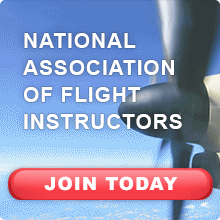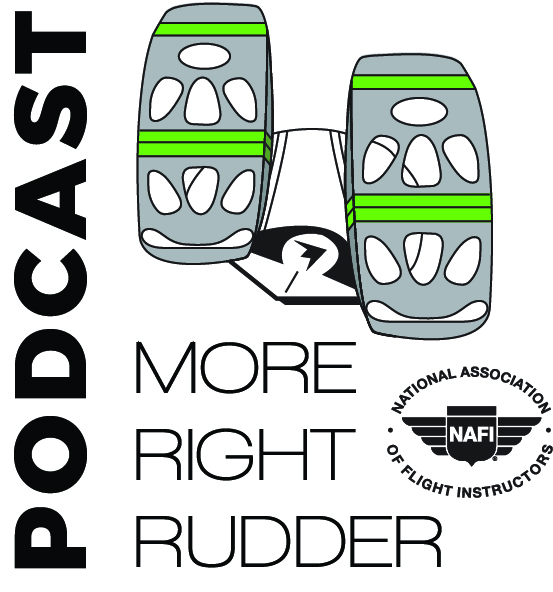|
About Flight Reviews
Periodically, the subject of flight reviews and whether or not a pilot "passes" one comes up in conversation or shows up in social media. This is one of those areas of flight instruction that necessitates a business discussion about time and pricing -- the bottom line for me is really about communication, and how good a job we do explaining the flight review process, the time it may take and what it might cost.
To damp down any possible confusion among older pilots, I'm talking about what the FAA previously referred to as a biennial flight review, abbreviated BFR. Information directly from the FAA about conducting an effective flight review can be found here. Meanwhile, a discussion of the separate but related subject of "stage checks," and how members feel about them appears in the next issue of Mentor's Feedback/Briefs section which you'll be seeing in September.
The most recent example I have comes from the Facebook group CFI Discussion Group, Certificated Flight Instructor. One of its members described a situation where a client didn't meet the minimum standards for a flight review, and how that client felt that they were being cheated by the instructor, particularly after that instructor told the client he'd be happy to provide additional training at the hourly rate.
Having been in this situation myself, I'm going to take the instructor at his word. I've withheld a flight review endorsement on the basis of performance. As the author of the post pointed out, if something happens to someone after I give them the endorsement, I'll likely have to spend a fair amount of time answering questions, at the very least. More importantly, I take the moral obligation of ensuring that a pilot is competent to fly and be safe in the National Airspace System pretty seriously. After all, these are people with family and friends who count on them, and we all share in the use of the sky.
Frankly, for the ground portion of the review, I have a lot of difficulty understanding how we can meet the requirements of 14CFR61.56 in only one hour. It usually takes me about two hours to go through the material recommended by the FAA publication
Conducting an Effective Flight Review, which I linked to above. As for the flight portion, by the time we get out to the practice area, do the maneuvers the pilot and I discussed, and come back and land, we're looking at about 1.3 to 1.5 hours. And this is assuming that all of the activity meets standards. If there's an area that needs work, the time needed goes up accordingly.
My strategy is to advise the pilot up front that this will take more than the minimum of one hour on the ground and in the air. I also let them know that there is no guarantee that I will sign them off. I also let them know that we will both assess their performance, but that I am the final arbiter. I've found that establishing ground rules in this manner saves a lot of heartache later. I can't think of a time when someone gave me grief about a flight review that needed extra time.
This all leads me to the question of the pilot who feels aggrieved that they didn't pass in the minimums or didn't pass at all. We've all heard stories of pilots that "go shopping" for someone that will just sign them off. Given the current regulations, that kind of behavior probably can't be stopped. So how do we encourage pilots to take the opportunity to improve their skills and instructors to uphold high standards during flight reviews? I'd love to hear your thoughts.
Bob Meder,
NAFI Board Chair
|






